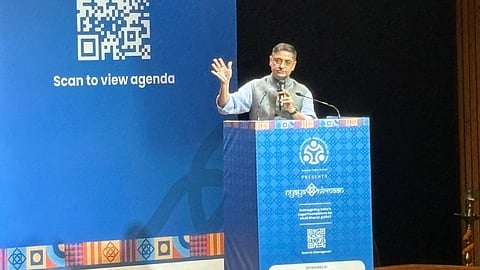GCAI-Nyay Nirman
News
Judicial system is biggest hurdle to Viksit Bharat: PM EAC member Sanjeev Sanyal
Sanyal called for a “cultural acceptance” within the legal profession of its systemic shortcomings instead of what he described as a “self-congratulatory tone” at conferences.

